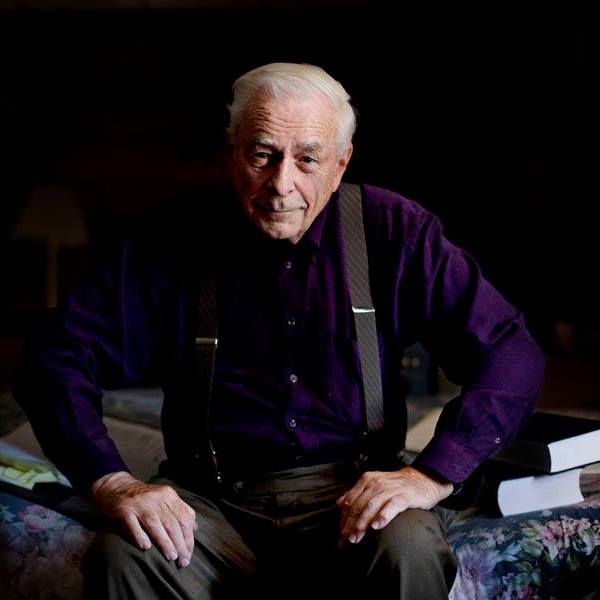Blog Post
Remembering Ted Byfield
By Jonathon Van Maren
I last saw Ted Byfield in July on the weekend of his 93rd birthday. We spent several days together, sitting in his office and outside on the sunny deck of his Edmonton home reading aloud the chapters of his biography that I’ve been working on for several years, the culmination of countless hours of conversation and research. He listened intently, riveted both by his own life and how fast it seemed to have gone; frequently, he would break out into that wonderful, raspy chuckle his friends know so well. When I looked up after reading about his beloved Ginger, he had tears trailing down his face.
Virginia died in 2014—they had been married 65 years and had worked together for a lifetime. When she passed, Ted told me, he wanted to die, too. His wife must have known this. “Her last words to me,” he said, “were: Don’t. You. Quit.” And Ted never did, not for a moment. Until nearly the very end, he was working on new projects (including a book on the fruits of Christianity), pitching new ideas, and offering his encouragement and friendship to others. “Tell me about this ‘podcast’ thing,” he said on one phone call. “Should we be doing something like that?”
When World War II arrived, Toronto filled up with uniforms. Ted was, he often said, “not in the War, but of the War” as he was too young to enlist, but he recalled Churchill’s growling radio broadcasts, rationing, young men just slightly older than himself being killed in action overseas, and the obsession boys had with deciding which branch of the armed forces they would join when their time came (Ted wanted the Navy.) There was suddenly an abundance of work, and Ted’s lifelong work ethic was forged as a delivery boy on Toronto’s streets and his first foray into the newspaper business came when he began selling Liberty Magazine and the Saturday Evening Post on the beaches of the Toronto Islands.








